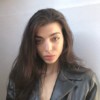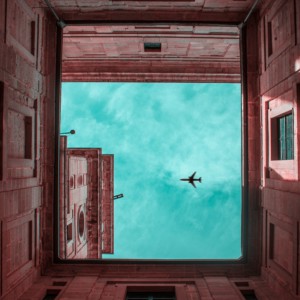Excavation Poetics: Language as Ruin Studio
Unearth the deep and enduring treasures buried in the cracks of language and investigate the unspoken in poetry.
“[…] There is the space where a thought would be, but which you can’t get hold of. I love that space. It’s the reason I like to deal with fragments. Because no matter what the thought would be if it were fully worked out, it wouldn’t be as good as the suggestion of a thought that the space gives you.” – Anne Carson
Poetry begins where language fractures. Through fragments, pauses, and silences, it offers what resists being fully spoken. This course engages with that inherent fragmentation by drawing on the concept of apocalypse as an unveiling – an idea embedded in the very etymology of the word.
From there, we’ll turn our attention to what lingers in the wake of such an event: the aftermath of apocalypse. Its leftovers, the residue, constitute a poetic site where finitude falters, memories surface in shards, blankness gathers, and gaps become utterances. These remnants will be approached as generative terrain, where language takes shape from what has been covered, shattered, forgotten, swept under.
We’ll look at poetry-making as an archaeological act: one of repair and re-articulation, where words excavate buried stories, and where writing becomes a practice of listening to the ruptures in language. During the classes, we’ll experiment with composing with what remains and unfurling what forgoes completion.
The ruin asks to be seen as an aperture, a fissure through which something endures and continues to speak. Participants will be invited to write through the cracks, attending to what is crumbling, what cannot be restored, what refuses to vanish, and what persists in altered or renewed form.
We’ll read and write poems that hold meaning in their erosion, rooted in vacancy as much as in fullness. Learning from a constellation of poets and artists – Anne Carson, Etel Adnan, Bhanu Kapil, Joyce Mansour, Susan Howe, Sophie Calle, Shilpa Gupta, among others – we’ll explore how poetic form itself can become a kind of ruin: partial, porous, layered. We’ll also consider the materiality of writing, how texture and visual presence contribute to a poem’s voice, with the ruin serving as both metaphor and method.
Studios are 4-week intensive courses. Reading material will be distributed before the course begins. There are no live chats so they are suitable for both UK & International students.
Concessions & Accessibility
To apply for a concession rate, please send relevant documentation showing your eligibility for one of our concessions to [email protected]. Conditions of eligibility are detailed here. If you have any questions or wish to be added to the waiting list of a sold-out course, please email [email protected].
What to Expect
Please check the left hand side of this page for information on how this course works in practice, under the heading ‘Course Style‘. If you’re unsure as to what any of the terms there mean, or if this course is a good fit for you, please visit our What to Expect page which includes some further information on how our courses function.
Image credit: @JamesDickson
About Giulia Ottavia Frattini  View Profile
View Profile
Giulia Ottavia Frattini is a poet, writer, and independent researcher based in Berlin. Her practice interweaves writing, visual culture, and critical theory, with a focus on meaning-making processes. She experiments with exophonic writing and anti-narrative forms, focusing on the tension between perception and self-determination. Her work spans poetry publications, curatorial projects, public readings, and a range of contributions – including essays, interviews, and commissioned writing – to international platforms, often engaging with hybrid forms. In 2023, she was a Visiting Teaching Artist at the Poetry Foundation in Chicago. In 2025, she joined the Poetry School as a tutor and became a lecturer at HBK – Braunschweig University of Art.
"The courses have kept me writing, offered mentors and companionship, provided inspiration for new work, offered me confidence-building and introduced me to some fabulous poets."
 ‘So, I’m a hag now, am I?’: Writing the Menopause Studio
‘So, I’m a hag now, am I?’: Writing the Menopause Studio Taking a Position: Points of View Studio
Taking a Position: Points of View Studio The Mirror of Masks: Bacchanalia to Contemplation Studio+
The Mirror of Masks: Bacchanalia to Contemplation Studio+